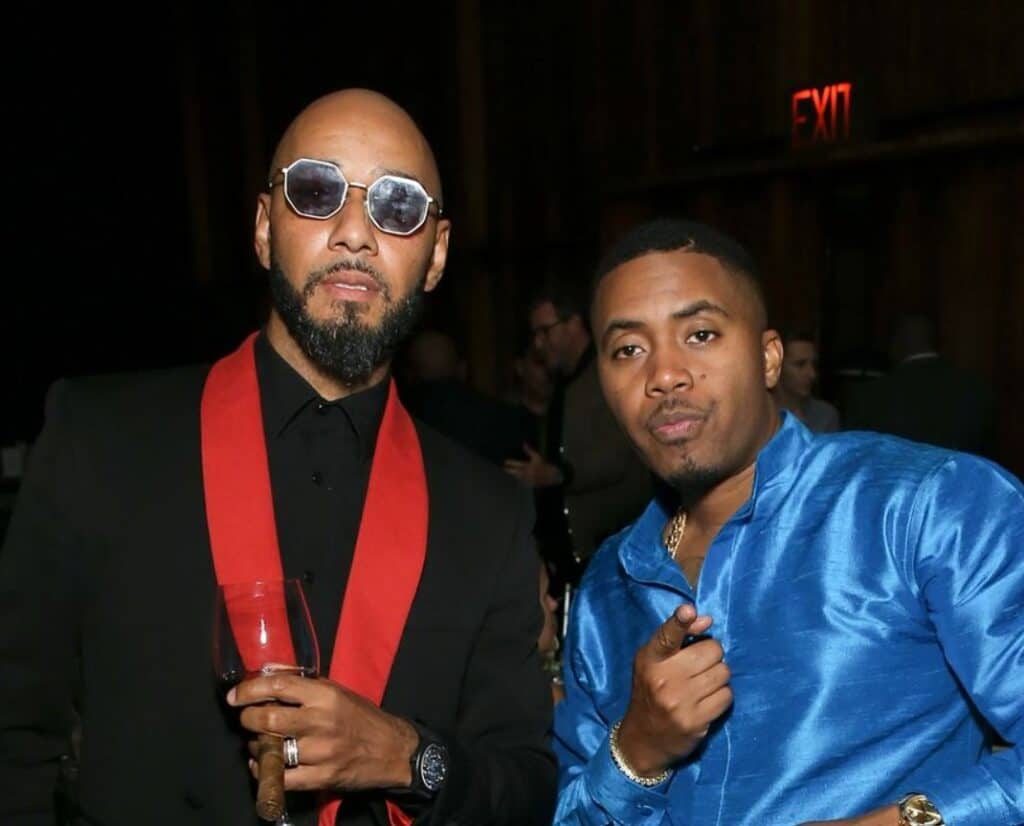Swizz Beatz ropes hip hop finest in his latest album which feat. Nas, Lil Wayne, and others.
In 2018, Swizz Beatz’s approach to creating his album “POISON”. He aimed to emulate the success of Dr. Dre’s influential album “The Chronic” by crafting an “East Coast Chronic” of his own. Swizz Beatz took a meticulous approach to the curation of the album, selecting only 10 tracks from a pool of 70 in order to highlight the most essential elements of his sound.
However, despite his efforts to create a modern classic, “POISON” did not achieve the same level of commercial success or cultural impact as “The Chronic”. It highlights the challenges of emulating a classic album, as well as the importance of careful curation in music production.
It appears that Swizz approached the creation of Hip Hop 50: Vol. 2, the second instalment in Mass Appeal’s campaign to commemorate the 50th anniversary of hip-hop (which occurred on August 11 of this year), with a similar attitude. The EP is being promoted as a grand love letter to New York’s hip-hop culture. The album features six tracks, on which Swizz and an all-star lineup celebrate the bold and unapologetic style of hip-hop that originated on the East Coast of the United States. Esteemed veterans and current stars alike contribute to this homage to hip-hop’s birthplace, but it is Swizz’s signature frenzied production that stands out the most.
https://www.instagram.com/p/CrRdcG6vFJ4/?utm_source=ig_web_copy_link
The album commences with Nas’s “Runaway,” featuring a soulful sample that sets the tone for the track. In the opening bars, Nas confesses that he still feels trapped and misunderstood, despite his many accomplishments. Conversely, “This S**t Right Here” by Lil Wayne exudes celebratory energy, as the rapper flexes his lyrical prowess and revels in his success.
Moving into “Take ‘Em Out” by Benny the Butcher and Jadakiss, the boom-bap beats and hard-hitting bars emphasize the importance of being ready to take on any challenge. “City Sound Like” by Fivio Foreign and Bandmanrill delves into synth-driven production and pays homage to Brooklyn’s drill scene, with Fivio’s dynamic flow stealing the spotlight.
“Say Less” by A Boogie wit da Hoodie and Lil Durk follows, with the two rappers unapologetically addressing their ongoing feuds over a cinematic trap instrumental. The track serves as a reminder that not all conflicts can be resolved with words alone. Finally, Jay Electronica’s “Khalas” closes out the album on a more introspective note, featuring a drumless loop and offering insights into the rapper’s personal experiences and reflections.
Overall, the album showcases a range of musical styles and perspectives, united by a shared dedication to the art of hip-hop. From self-reflection to unapologetic bravado, each track adds a unique layer to the album’s cohesive narrative.
The EP titled “Hip Hop 50: Vol. 2” is an intriguing release that features Swizz Beatz as the master and primary producer. The overall sound of the project is boisterous and rowdy, which proves to be an ideal match for bringing out the fiery edge of the various collaborators featured on the EP. Swizz Beatz uses a blaring horn fanfare on the track “This Sh*t Right Here” to encourage Lil Wayne to recreate his frenzied form from a previous collaboration between the two artists, “Uproar.” Similarly, the bruising beat on “Say Less” empowers A Boogie Wit da Hoodie to showcase an uncharacteristic assertiveness, as he raps with a newfound bruteness that fits comfortably within Swizz’s world.
Swizz Beatz also extends his role beyond production by adding spoken word to the EP. At times, his adlibs contribute to the anarchy and energy of the tracks, but on occasion, his presence can be grating and drown out the voices of his guests. However, for the most part, he chooses his opportunities wisely and manages to elevate the overall experience.
The inclusion of New York natives on the EP is not merely a token gesture, as it serves to add an authentic and personal touch to the project. For example, on the track “Runaway,” Nas reflects on memories from his youth, lending lyrics that touch on his personal link with New York. Meanwhile, Benny The Butcher shares his own experiences growing up on the streets of Buffalo on the track “Take ‘Em Out,” painting a vivid picture of his harsh upbringing in the city. While there are specific lyrical gems such as these scattered throughout the EP, they aren’t pronounced enough to fully elevate the project to its potential.
Clocking in at just nineteen minutes, “Hip Hop 50: Vol. 2” is a brisk listen, and Swizz Beatz seems to struggle with trying to cram too much into a short timeframe. As a result, he struggles to provide each guest with enough space to truly shine and tell their story. For example, Jay Electronica’s single verse on “Khalas” is sandwiched between Swizz’s Ramadan celebrations and a fairly wan inspirational speech, which doesn’t allow for Jay to fully showcase his lyrical prowess. Additionally, JAY-Z’s chorus on “This Sh*t Right Here” is so inconsequential that he isn’t even officially listed as a guest, which feels like a missed opportunity to let two of this era’s most decorated artists test each other.
Overall, “Hip Hop 50: Vol. 2” is an impressive showcase of the past, present, and future talents of New York’s hip-hop scene. Most of the featured artists assimilate well with Swizz Beatz’s vision, and he rewards their cooperation by helping them to create some of their strongest material in years. However, the EP would have benefited from having a concrete narrative throughline to tie everything together, as it feels more like an investigation of Swizz’s production palette rather than a celebration of New York hip-hop as a whole.








